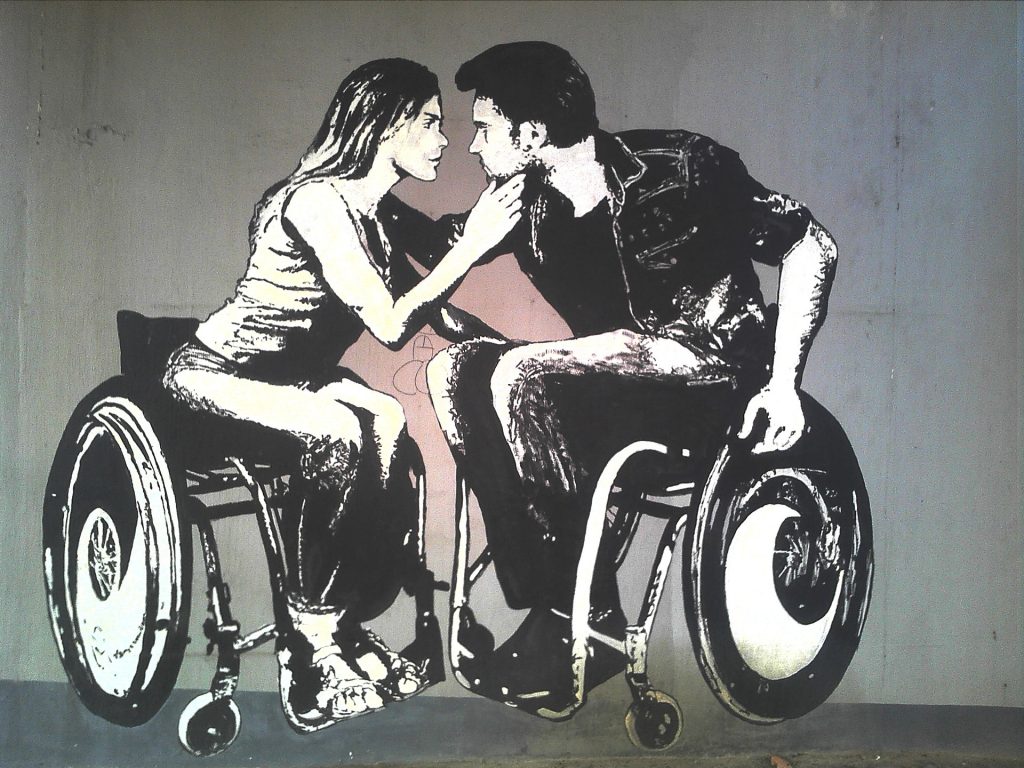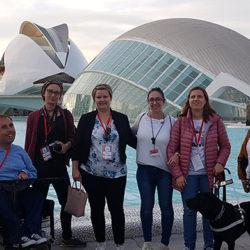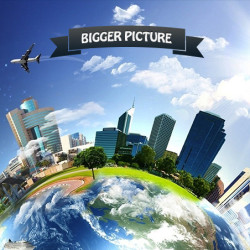Who remembers the 1990’s Bloodhound Gang song that went “you and me baby ain’t nothing but mammals, so let’s do it like they do on the discovery channel”? Not your normal opening line in an article, admittedly. But it illustrates how we all understand that sex, and relationships, are simply in our nature. On a basic DNA level we are driven to procreate and keep the human race going.
Yet as humans we have a weird relationship with sex culturally. It’s such a taboo topic in many a conversation. Another taboo and uncomfortable conversation is disability. It’s widely acknowledged that people can feel uncomfortable when talking to a disabled person. According to the Scope ‘End the Awkward’ campaign, ⅔ of Brits shared this sentiment (https://www.scope.org.uk/campaigns/end-the-awkward/).
From a brand marketing perspective sex has always sold. Maybe because of its taboo nature it cuts through the sometimes vanilla advertising landscape. Probably more so it’s because of its inbuilt importance biologically. As mentioned by the Bloodhound Gang. It resonates on a deeper psychological and physiological level. Essentially a marketer’s dream outcome.
Yet brands don’t seem to connect disability with sex and relationships. Why is this?
Disability and Sex
I’m going to state the obvious now, but unfortunately this is a point much of society still doesn’t yet grasp. Disabled people are humans, with all the typical wants and needs. We want to date, find love, have great sex, and many disabled people are fantastic parents with awesome children.
But stereotypes say otherwise, suggesting disabled people are asexual beings. This is probably why we see too many inaccessible and discriminatory dating brands and sex companies. There are of course positive experiences and solutions. But she’s are seldom shown on social media campaigns.
As a disabled person myself, sharing a timely experiential Valentines anecdote for you here, I can attest to the fact we have human desires. I’ve been on great and atrocious dates. I’ve been dumped and I’ve ended relationships. I’ve had mind-blowing sex and totally forgettable sex. I’m now engaged to my beautiful partner. Maybe one day we’ll have kids. Yes, sometimes because of my disability things aren’t always ‘normal’ but if we’re honest what does that even mean?
For example last year on Valentine’s Day I arranged the card and present on Moonpig. Not because they’re a disability specialist service. But with my disability going to the shops, in the pandemic, was less desirable. So an online home delivery service ticked my boxes there. Being unable to physically cook or decorate the table, I arranged with one of my personal care assistants to support me with this aspect of my wooing. In my own way I still did what any good partner would do. Showed my love for my soul mate and stuffed myself on paella and desert tapas!
An Unmet Need
On a bigger level we saw the consequence of society excluding disabled people from this part of life when launching Disability Horizons magazine in 2011. Many members of our community were ecstatic to have the opportunity to write about their naughtiest sides. At that time many disability charities found the topic too taboo! We used to joke that if we needed a bump in website hits, we simply needed a sex article.
Beyond the humourous take, there’s a serious side. To be excluded from dating, excluded from having fulfilling relationships, and excluded from having great sex can lead to isolation, loneliness and worse. Because it’s so embedded in our being, and we place so much importance on it culturally, people’s mental health is affected from these exclusions.
If you are disabled and looking for some support on this topic, here’s one of many great articles on the Disability Horizons site https://disabilityhorizons.com/2018/09/disability-and-relationships-a-different-way-of-looking-at-sex/.
You Have Power
If reading this has been eye opening, even a little frustrating, I offer these actions. Never presume anything and always update your stereotypes from past knowledge. Regardless of disability, race, sexuality and so forth just remember we’re all human. Encourage brands and public policy to engage disabled people about our experiences, co-produce inclusive solutions, and communicate solutions with disabled people to the community.
Of course, like with my anectode and a handful of positive inclusive brand campaigns, it’s not all bad. But still too many disabled people are left out of this world. Imagine a time where disabled people can access all dating, sex and relationship solutions. Just like everybody else.
It’s simply in our hands to make that a very possible reality!




